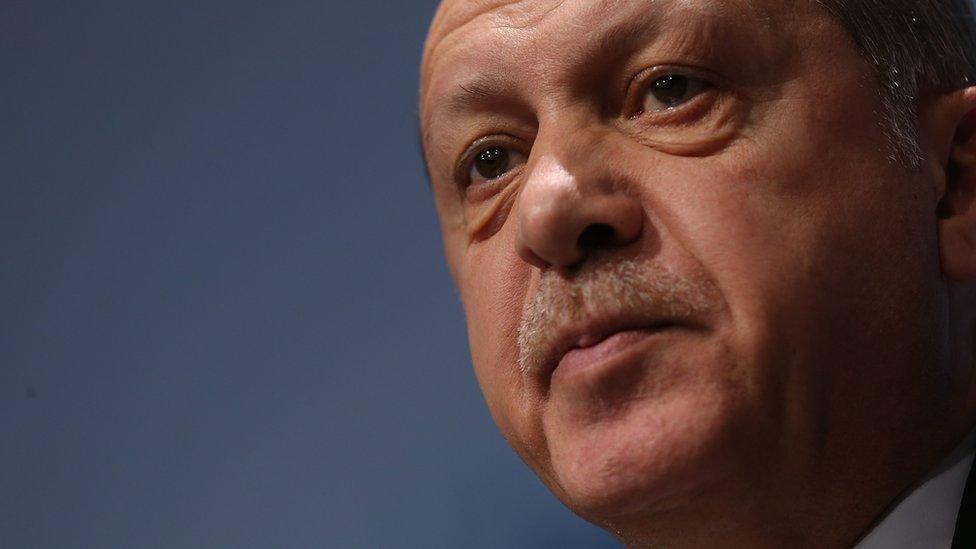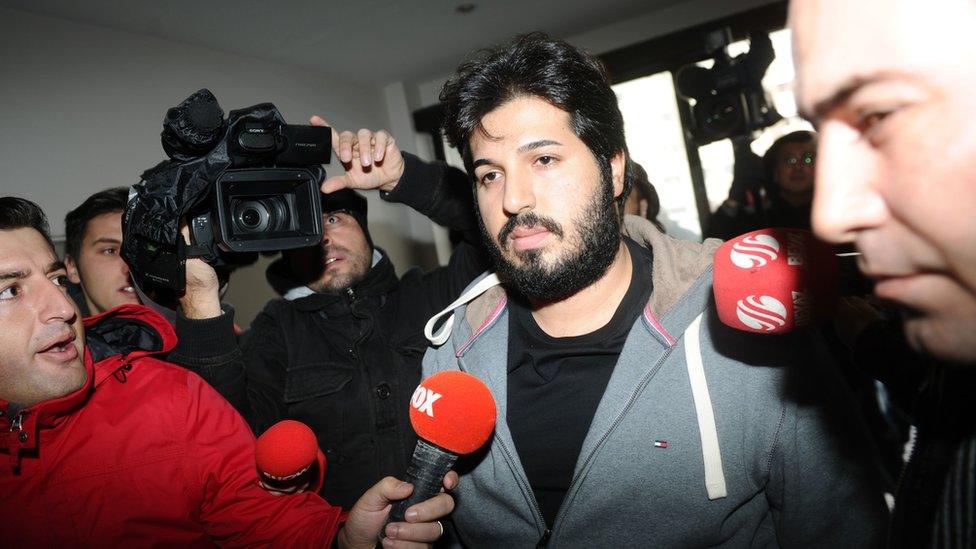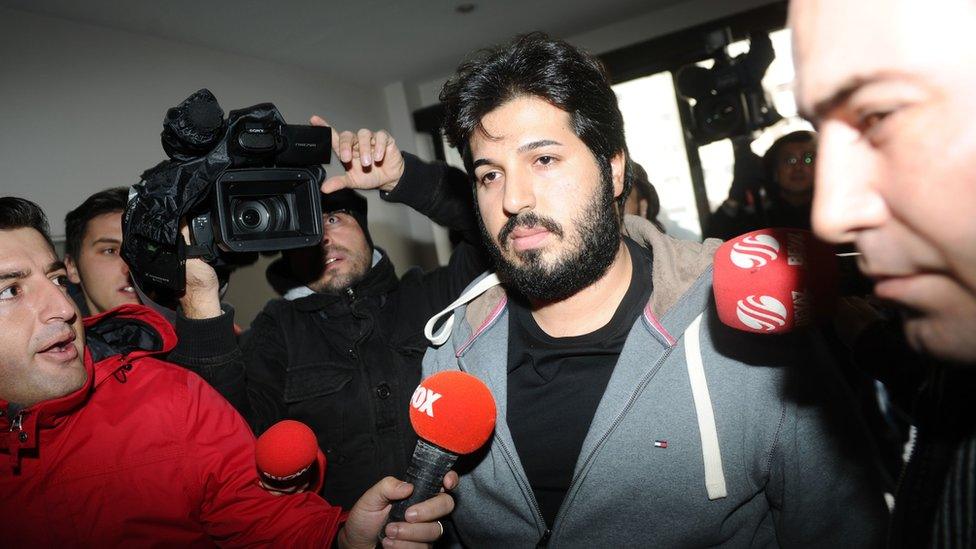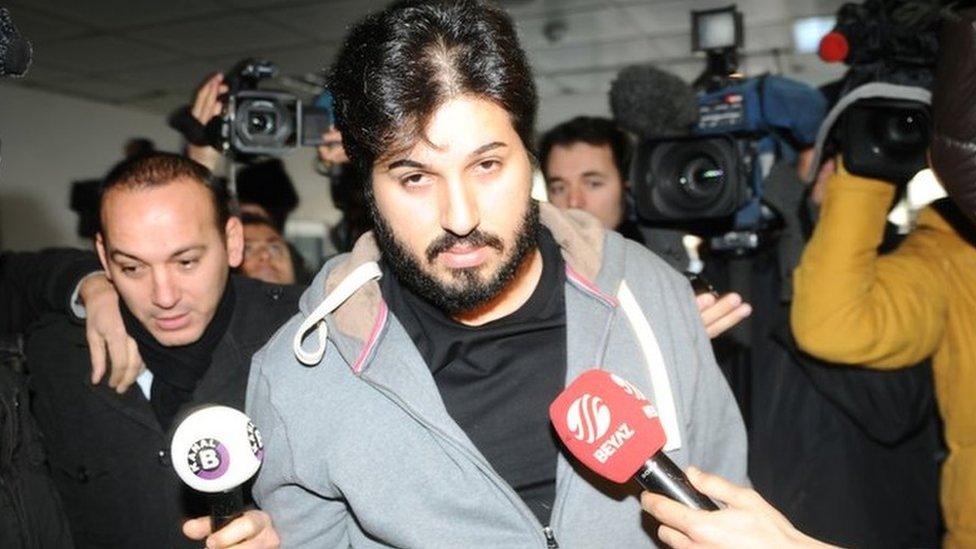Reza Zarrab case: Gold trader implicates Turkish President Erdogan
- Published

Reza Zarrab told the court President Recep Tayyip Erdogan (pictured) approved sanction-breaking deals
A controversial Turkish-Iranian gold trader has told a US court that Turkish President Recep Tayyip Erdogan personally approved his sanction-breaking deals with Iran.
Reza Zarrab, 34, is a key witness in the criminal trial of a Turkish banker whom he allegedly worked with to help Iran launder money.
Mr Erdogan has denied that Turkey breached US sanctions on Iran.
The case has strained relations between Ankara and Washington.
In his testimony, Mr Zarrab implicated Mr Erdogan in an international money laundering scheme that he and the banker, Mehmet Hakan Atilla, ran between 2010 and 2015 that allegedly allowed Iran to access international markets despite US sanctions.
He said that he was told in 2012 by the then economy minister that Mr Erdogan, who was prime minister at the time, had instructed Turkish banks to participate in the multi-million dollar scheme.
Mr Erdogan said earlier on Thursday that Turkey did not breach US sanctions on Iran, Turkish media report. His government has described the case as "a plot against Turkey".
The Turkish president is yet to respond to the new allegations about him made in court.
Mr Atilla has pleaded not guilty. Nine people have been charged in total.
Mr Zarrab was arrested by US officials in 2016 and accused of engaging in hundreds of millions of dollars' worth of transactions on behalf of the Iranian government, money laundering and bank fraud.
But he decided to cooperate with prosecutors and is now their star witness in the New York trial.

The case involving Mr Zarrab has been closely followed in Turkey
On Wednesday, he told the court he paid Zafer Caglayan, then Turkey's economy minister, bribes amounting to more than 50m euros ($59m; £44m) to facilitate deals with Iran.
Turkey's Deputy Prime Minister, Bekir Bozdag, responded to the allegations, saying that Mr Zarrab had been "pressured into committing slander".
Speaking to state-run news agency Anadolu, Mr Bozdag called the trial a "theatre".
The Turkish government had previously said that Mr Caglayan acted within Turkish and international law.
The case is being closely followed in Turkey but the country's mainstream media have treated it with caution, BBC Turkish service's Enis Senerdem says.
- Published30 November 2017

- Published29 November 2017
